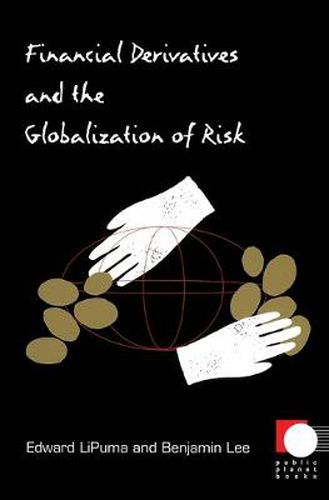Readings Newsletter
Become a Readings Member to make your shopping experience even easier.
Sign in or sign up for free!
You’re not far away from qualifying for FREE standard shipping within Australia
You’ve qualified for FREE standard shipping within Australia
The cart is loading…






The market for financial derivatives - including currency swaps, stock options, and commodities futures - is far and away the largest and most powerful market in the world, and it is growing exponentially. In 1970 the yearly valuation of financial derivatives was probably only a few million dollars. By 1980 the sum had swollen to nearly one hundred million dollars. By 1990 it had climbed to nearly one hundred billion dollars, and in 2000 it approached one hundred trillion. Created and sustained by a small number of European and American banks, corporations, and hedge funds, the derivatives market has an enormous influence on the economies of nations, because it controls the price of money. Derivatives bought and sold by computer keystrokes in London and New York affect the price of housing in Johannesburg, Kuala Lumpur, and Buenos Aires. Arguing that social theorists concerned with globalization must familiarize themselves with the mechanisms of a world economy based on the rapid circulation of capital, Edward LiPuma and Benjamin Lee provide a concise introduction to financial derivatives. LiPuma and Lee describe the derivative as the primary financial instrument of a global economy based on the circulation of a large, voracious pool of speculative capital and an extremely abstract notion of risk. Emphasizing the relation - or lack of relation - of derivatives to production-oriented, labour-based economies, LiPuma and Lee trace the implications of today’s culture of financial circulation for the ongoing construction of democratic governance across the postcolonial divide. While regional crises and spectacular corporate failures - including the collapse of Argentina’s peso and the demise of the Enron Corporation - periodically put derivatives trading in the news, LiPuma and Lee seek to catalyze sustained cultural analysis of its staggering social and economic effects.
$9.00 standard shipping within Australia
FREE standard shipping within Australia for orders over $100.00
Express & International shipping calculated at checkout
The market for financial derivatives - including currency swaps, stock options, and commodities futures - is far and away the largest and most powerful market in the world, and it is growing exponentially. In 1970 the yearly valuation of financial derivatives was probably only a few million dollars. By 1980 the sum had swollen to nearly one hundred million dollars. By 1990 it had climbed to nearly one hundred billion dollars, and in 2000 it approached one hundred trillion. Created and sustained by a small number of European and American banks, corporations, and hedge funds, the derivatives market has an enormous influence on the economies of nations, because it controls the price of money. Derivatives bought and sold by computer keystrokes in London and New York affect the price of housing in Johannesburg, Kuala Lumpur, and Buenos Aires. Arguing that social theorists concerned with globalization must familiarize themselves with the mechanisms of a world economy based on the rapid circulation of capital, Edward LiPuma and Benjamin Lee provide a concise introduction to financial derivatives. LiPuma and Lee describe the derivative as the primary financial instrument of a global economy based on the circulation of a large, voracious pool of speculative capital and an extremely abstract notion of risk. Emphasizing the relation - or lack of relation - of derivatives to production-oriented, labour-based economies, LiPuma and Lee trace the implications of today’s culture of financial circulation for the ongoing construction of democratic governance across the postcolonial divide. While regional crises and spectacular corporate failures - including the collapse of Argentina’s peso and the demise of the Enron Corporation - periodically put derivatives trading in the news, LiPuma and Lee seek to catalyze sustained cultural analysis of its staggering social and economic effects.